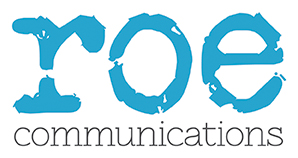If you want to get your business school into the media, you will need to pitch stories to a journalist.
Being new to it, you might Google an article on constructing a winning pitch (there are plenty online).
You might spend time crafting a headline-grabbing subject line, or a punchy summary of your idea.
These are all good skills to have.
So you might be frustrated as to why journalists still don’t respond.
The truth is that crafting your pitch is only half of the process – the other half starts way before you press the send button.
Imagine you are a journalist
Picture the scene: it’s Tuesday morning, and a journalist you want to reach is sitting at their laptop.
They’ve just finished an online meeting with their editorial team, and they have a full day of interviews and writing ahead.
Your email is the 30th to ping into their inbox. They glance at your subject line, but it doesn’t seem topical or relevant to them right now. And they don’t recognise your name.
What would you do?
The hard fact is that 42 per cent of journalists get between 11-100 pitches a day.
Focusing on the wording is just the final step designed to get you in the door.
So what do I need to do before I pitch?
Establish a prior relationship
As in many areas of life, the key to success is relationships.
We are not saying that a good story won’t stand on its own. But in reality, if you build a rapport with a journalist over time, you are in a better position to pitch to them.
It’s a bit like going to a cocktail party. If a stranger approached you and started telling you how great they were, how long would it be until you made your excuses?
The key is to get to know journalists BEFORE you need them. Follow them on Twitter, ask them to be connected on LinkedIn and engage with them. Take an interest in what they write about and try to be helpful, not pushy. Or ask someone with good contacts to introduce you.
Look from the outside-in
Are you sure that your pitch is a real story that adds value to readers – and not just what you want to promote?
We hate to break this to you, but journalists are not interested in you. Their priority is their readers.
There are exceptions, where the organisation IS the news. But for business schools looking to break into the media, this is rarely the case.
Know the topics and the type of stories your target journalist covers and whether yours is suitable for their readers.
Tip: the projects you get excited about internally don’t always make good press stories.
Apply the ‘news test’
Journalists have a well-honed news sense. But for the rest of us, it can be tricky to assess.
A good thing can be to work through this checklist – the more you can tick off, the stronger your story will be:
– Is it new?
– How topical is it?
– Is it relevant to a wide group of readers/viewers/listeners?
– Does it help people? For instance, shedding new light on a trend, or countering a prevailing argument.
– Or is it simply amusing, trivial or downright weird?
– What’s the human element?
– Would they want to share this with family and friends?
Another useful exercise is to think about what the headline would be. Compressing your idea into 10 words or less really makes you focus on strong angles.
Gauge your story strength
If we had a pound for every time a business school said to us: “We want to be in the FT” – we’d be rich”!
Yes, the FT is one of the most influential business education publications. And we often secure stories for clients here.
But that’s because these stories are FT-worthy.
They likely address something highly relevant and valuable to most of their readers, are topical or add something new to an issue or trend, with a human interest element and insights from experts.
Pre-match preparation
Remember: journalists are humans under time pressure to get their job done. By developing relationships, honing your news sense, and picking the most appropriate outlets, you will give your school an even better chance of hitting the news pages.
If you are looking to establish your business school in the media, we can help. Click HERE for more ideas on how you can start to get media coverage.


